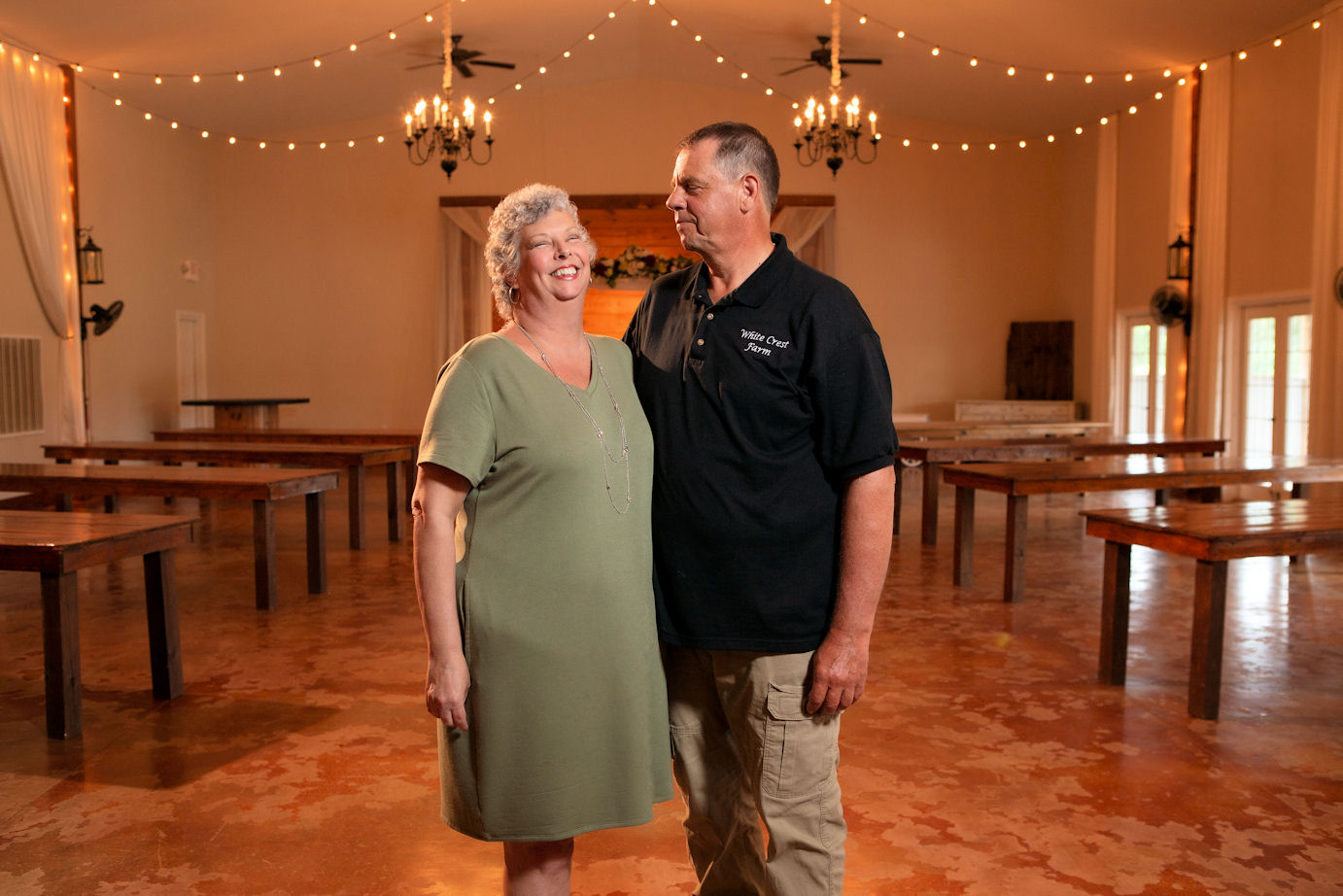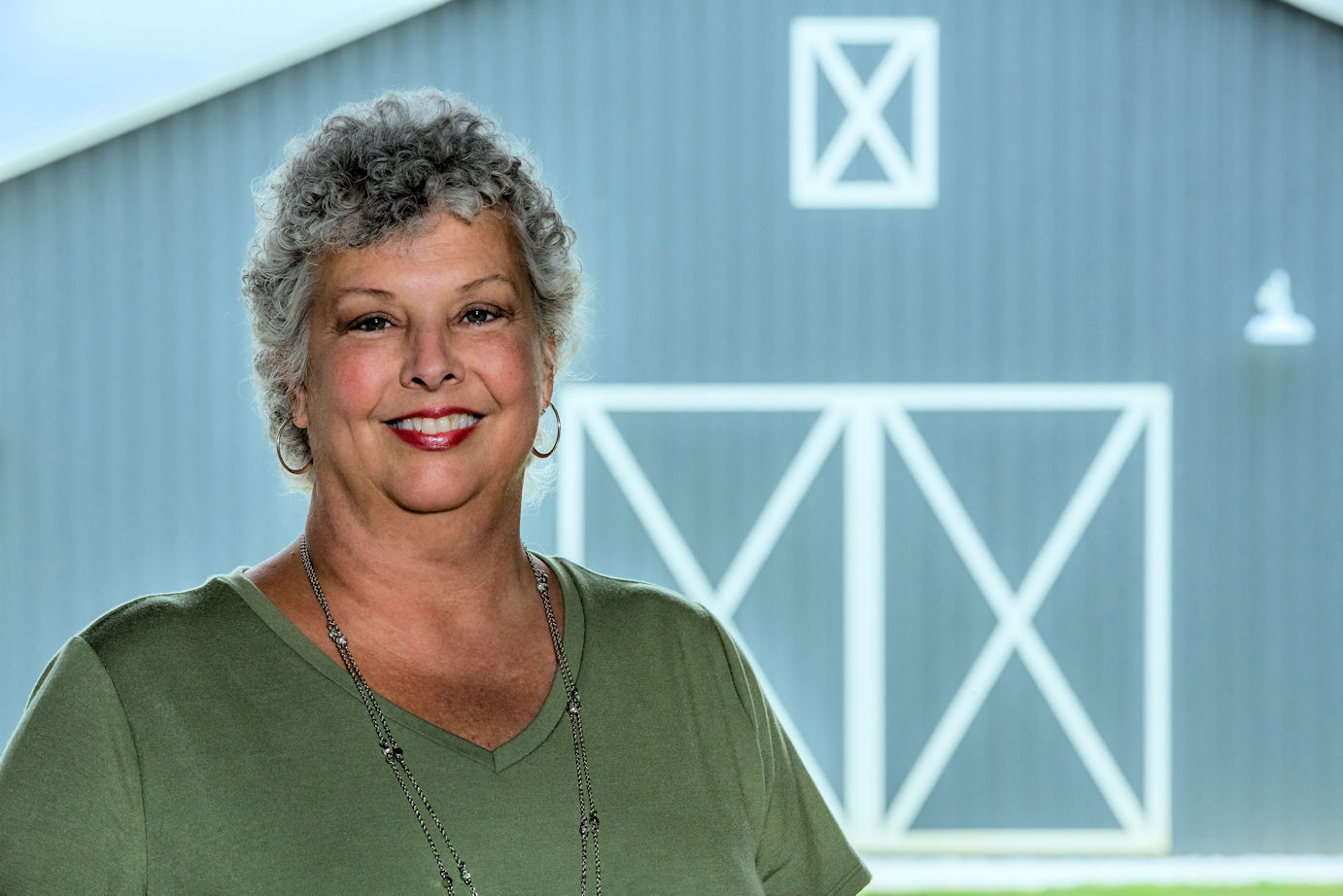When Carol Fulton found a lump in her breast she didn’t panic, even though she suspected it was cancer.
She called her doctor and embarked on a journey that would go on for many months. A diagnostic mammogram, an ultrasound and biopsy quickly led to a breast cancer diagnosis, and her doctors developed a personalized treatment plan for her.

“I already knew it in my heart, somehow I just knew,” Fulton said. “But it was still a shock for me to hear the words, ‘you have cancer.’”
Despite the extremely difficult news, she didn’t become overwhelmed by her diagnosis.
“I had a certain peace about it from the get go,” Fulton said. “God had given me a peace and told me I was going to be OK.”
Her oncologist was
Bradley Larson, MD, who is board-certified in medical oncology with Northwest Georgia Oncology Centers, and her surgeon was
Thomas Reeve, MD, who is board-certified in surgery with Carrollton Surgical Group.
Richard Bland, MD, a board-certified radiation oncologist with Tanner Radiation Oncology, oversaw her radiation treatment.
“All of my doctors and nurses were awesome,” she said. “When you walk into their offices, you see all these other patients waiting, but they take care of you like you are the only person there. They make you feel like you are the only person who matters.”
Her
nurse navigator, Nicolle Rooks, RN, was a lifesaver, said Fulton. Rooks met her at every appointment and explained what would happen.
“I knew I could call her at any time if I had a problem or a question about anything,” Fulton said.
Through it all, her husband was her rock.
“My husband, Dennis, was my hero, and he still is,” she said. “He kept me strong every step of the way.”
Starting Treatment
Fulton, who had stage III breast cancer, needed chemotherapy, surgery and radiation.

“Everything went very quickly from the diagnosis to starting the treatment plan,” said Fulton, who lives in Carrollton. “They take you through each step of the plan and let you know what’s going to happen next and how they are going to help you get better.”
The process began in August 2018 with chemotherapy, which lasted into December. She said she tolerated the chemotherapy pretty well and never got sick to her stomach.
“It mostly just made me feel exhausted and gave me brain fog,” she said.
Losing her hair was the hardest part of cancer treatment, said Fulton, who had very long blonde hair.
After her second chemotherapy treatment, friends and family came over to help her shave her head. “We tried to make it fun, and we did a whole bunch of hair styles and took some pictures,” Fulton recalled.
But losing her hair was a tough, daily reminder of her cancer diagnosis.
“Whenever you go out in public, it feels like people automatically know you have cancer,” she said.
She got a wig, but only wore it once because it was too hot.
“Because I didn’t have any hair or eyebrows, I felt like an alien,” she said. “But I realized it was all vain stuff in the bigger picture of saving my life.”
She had a few weeks to recover from chemotherapy, and then she had a lumpectomy surgery. Some of her lymph nodes were also removed since the cancer had spread there.
Juggling Life with Cancer
In January, she started six weeks of daily radiation treatments. She also went back to work at the Carroll County Schools as an interpreter for deaf students after having taken medical leave during chemotherapy.

“They worked around my school schedule, so I went straight to my radiation appointment every day after school,” Fulton said.
She tolerated radiation very well and only had some minor skin color changes.
“I would come home from radiation and sit down for 30 minutes and then I’d be fine,” she said. “Compared to chemo, it’s a piece of cake.”
After she completed radiation, she
had a PET scan that showed she was cancer-free.
Fulton is grateful to be through the toughest part of treatment and says she is feeling well. She is still taking an estrogen-inhibitor medicine to reduce the risk of recurrence of breast cancer.
Her hair is growing back, but she says it’s different — extremely curly and a salt-and-pepper in color.
She is also enrolled in a clinical trial, taking a medicine that is normally given to stage IV patients to see if it will help stage III patients as well. The trial will last for two years, she said.
“Access to clinical trials is not only advancing medicine, but patient care,” said Dr. Larson, Fulton’s medical oncologist. “It gives us the opportunity to offer therapies that are on the leading-edge of research.”
The clinical trial medicine makes her tired, but she is moving full-speed ahead.
“I feel pretty good, and I’m doing everything I want to be doing and living my life,” Fulton said.
She’s at a point where she can reflect on her journey. Fulton said she learned a lot during her experience with breast cancer, and there’s one lesson she especially wants to share: “Let people help you,” she said. “Women don’t like to let someone else take care of us because we are always the ones taking care of other people, but it’s important to take time out to let yourself recover.”
Fulton and her husband Dennis own a wedding venue in Carrollton —
White Crest Farm — and run the business together. Carol was originally a wedding coordinator so when they bought the historic farm 20 years ago and turned it into a beautiful wedding venue, it was a natural evolution. During her treatment and recovery, Fulton’s daughter stepped in and took over running the business but now Fulton is back in the swing of things, planning memorable events and storybook weddings for people who live as far away as Rome and Cartersville.
“I absolutely love helping couples plan their weddings and being part of their special day,” she said. “I feel grateful every time I get to be part of that. I especially love the dancing.”
Time to Reflect
Looking back, she realizes how essential her faith, her family and her friends were during these difficult months.
“Having God on my side is a biggie, and so is having prayers from my friends and family,” she said. “Every patient needs their friends and family to help them through this.”
Fulton said she didn’t tell everyone about her illness or post anything on Facebook. In hindsight, she thinks it might help to share more about what you are going through.
“You should tell your friends,” she said. “Get those prayer groups going, and have your friends visit. They don’t have to worry about what to say; they can just come and sit with us and be a friend.”